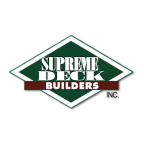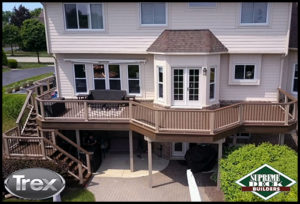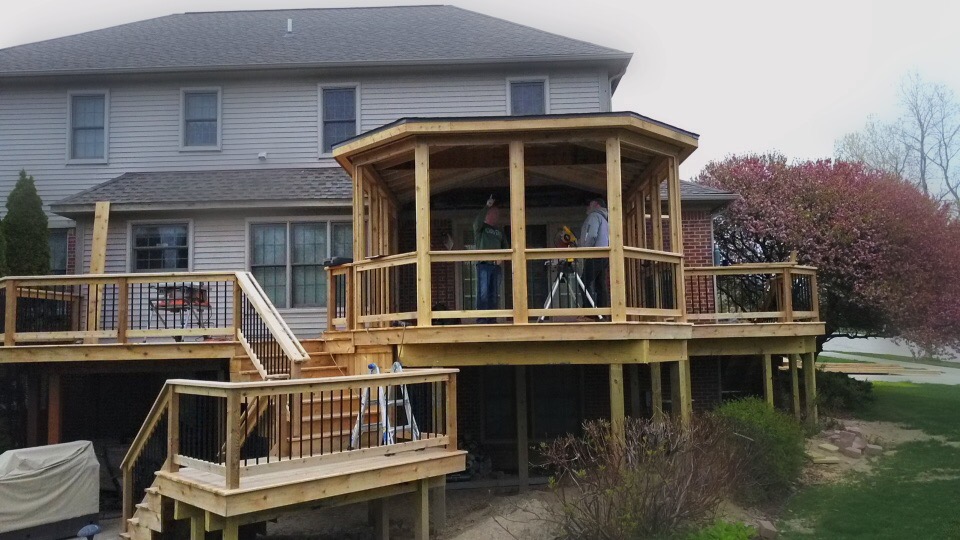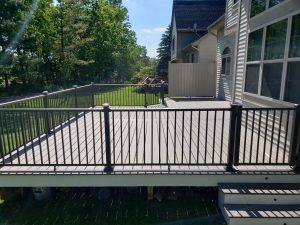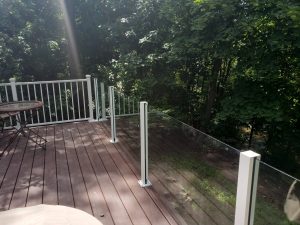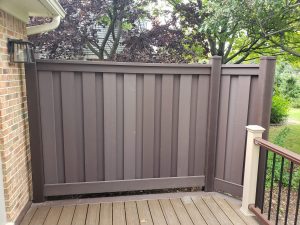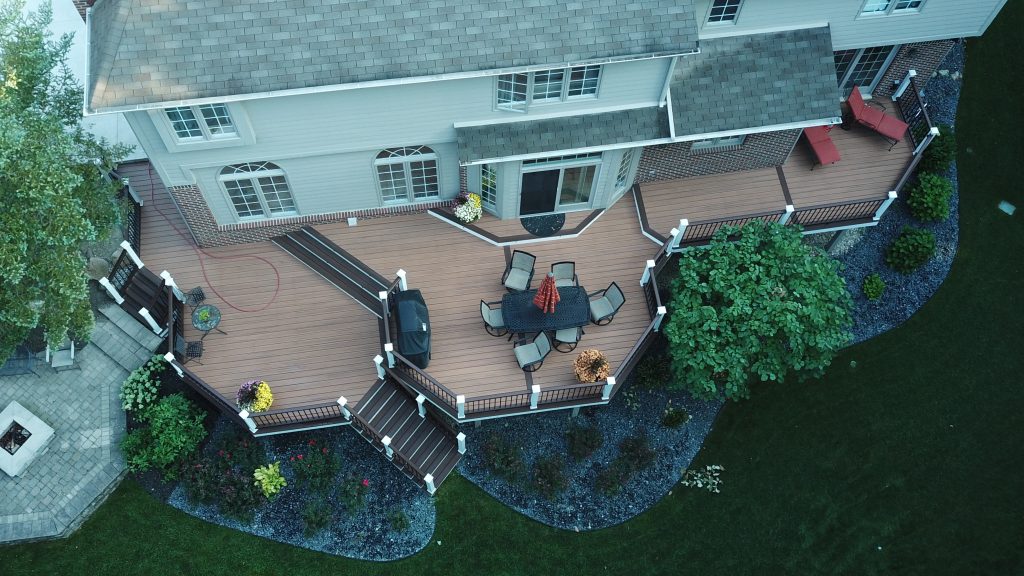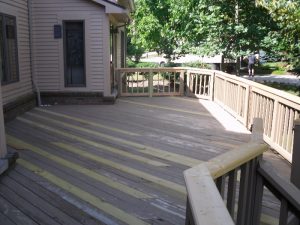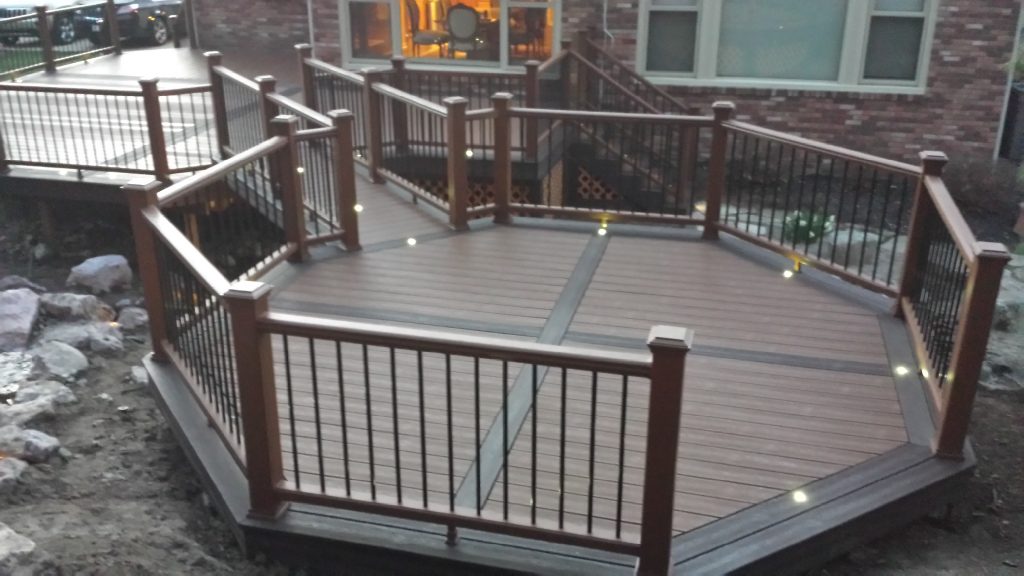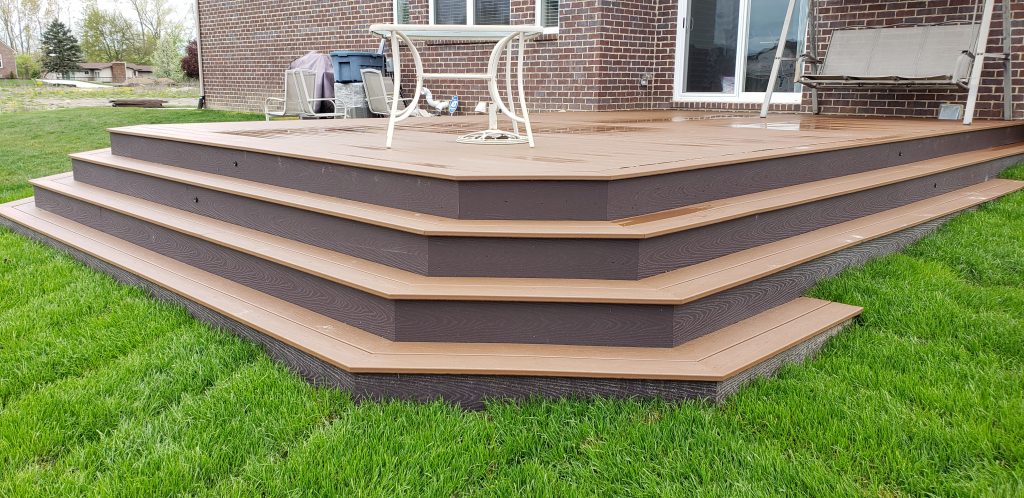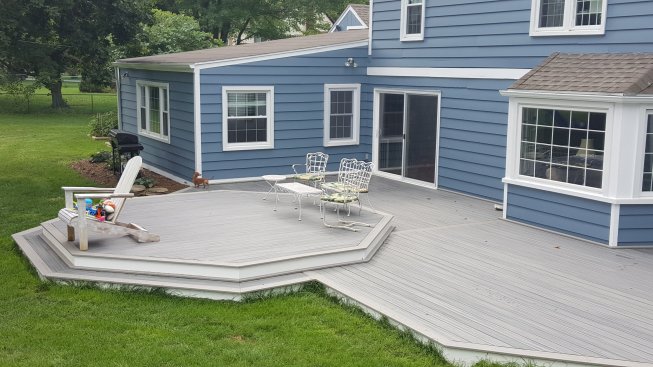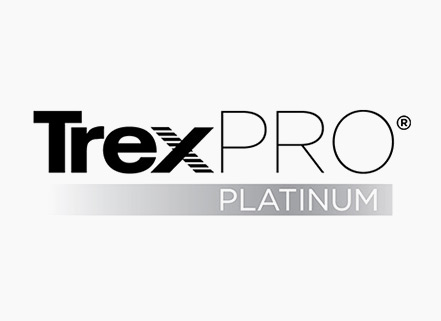Supreme Deck specializes in building affordable Trex decks in Michigan.
Which decking material is the best? Which decking should I use?
These are questions we get asked all the time when we meet with clients and for good reasons. There are hundreds choices of alternative decking products and on top of that most manufacturers have several product lines so which one is right for me? When we add to this the fact that some alternative decking products have failed in the early years of the industry, causing companies and products to come and go, this can be a crippling decision.
The good news is that along with the bad experiences there are a lot of success stories that never get published. One of the best ways you can make sure that yours will be a success story is to educate yourself on the product you are considering and understand the pros and cons of the particular product. I stress again the pros and cons. There is not a perfect product that will be the best choice for all consumers and all applications, it just simply does not exist.
Alternative wood decking products – Affordable Trex Decks
Cedar, Ipe, Thermally modified wood, Bamboo, Redwood, Cumaru, Massaranduba… These are all wood products that are either a different species or they are modified in some way. People that love real wood products will gravitate to these, I call them purist.
Cedar and Redwood are the main softwood players in this category and are rich in naturally occurring tannins which resist decay and termites. Today’s widely sold cedar is not the same as it was 30 years ago. Most of it is fast grown/farmed with very little heartwood so the richness of the tannin is not there, which has jeopardized its performance in horizontal applications such as decking where you have sitting water. On vertical applications it’s still widely used and does fine with a pre-application of stain on all sides.
Synthetic decking products – affordable Trex decks
The advantages of adding wood (wood capped composites) to the decking is that it creates a firmer feel and more realistic look, these boards are quite dense and heavy.
- Trex Transcends is a capped composite (has wood filler) with the cap on 3 sides. Trex did this so the product can breathe and that the moisture has a way of escape from the bottom. It’s available in solid and variegated colors and has a matching railing system for solid colors. This deck board is that the scratch resistance is really good and the Transcends line is made of 95% recycled materials.
- TimberTech Earthwood Evolutions Terrain is a capped composite (has wood filler) with the cap completely surrounding the decking board on 4 sides. Their approach is to seal out moisture completely. This is not their high end line but a very good board for the money. It’s available in solid and variegated colors. TimberTech has a wide selection of railings
- AZEK. This product is capped on all 4 sides and does not have any wood content in it. It’s a lighter weight board and not as dense as the composites. They also have solid and variegated colors available, with the solid colors have a matching railing system. A wide selection of colors and this product is ground contact approved.
Composite decking features
- Scratch resistance: How important is this to you? Do you have a dog? Are you the type that is going to notice every little scratch and will this keep you from enjoying your investment? If so go for a product with good scratch resistance and a product where the scratches will not be very visible
- Traction: Will this be used year around as the main point of egress? The deeper grain patterns will give more traction in wet conditions.
- Maintenance: How much effort are you comfortable with? There is no such thing as no maintenance.
- Fade and stain resistance: A lot of new synthetic products have a fade and stain warranty (check the fine print most are pro-rated). With a wood deck you can always re-stain, so it is not as much of a concern.
- Longevity: What is the time projection of your deck project? If you are planning on re-working something or moving shortly, you might limit the level of investment.
- Budget: Here is the reality check, what are you willing to invest? We build affordable Trex decks
- Heat retention: Different products will hold a varying amounts of heat, with color being a factor in thermal retention. Decks near pools have this as one of their primary concerns.
- Color: Does your desired deck board come in the color you are looking for?
Affordable Trex Decks in Michigan
Even though there are hundreds of choices, this does not have to be an overwhelming decision making process.
- Do your own research
- Find a deck builder who is will to listen to your needs, share with him your goals and let him help. A good deck builder that you can build a relationship with is a great resource to you since they work with these products every day.
- Ask to walk a deck that was built with the materials you are considering.
- Establish realistic expectations with the decking product of choice, remember all products will require some maintenance.
- Don’t just focus on one thing like decking materials. A lot of things play into effect to make a successful deck, like design, layout, railings, and location to the sun, house and yard.
- Make sure you are comfortable with your decision of product manufacturer. Most of the time the warranties apply only to the manufacturers own product and are pro-rated.
- A beautiful and functional deck is one that will take all these different aspects into consideration and takes advantage of them.
- Search for a contractor that builds affordable Trex decks

